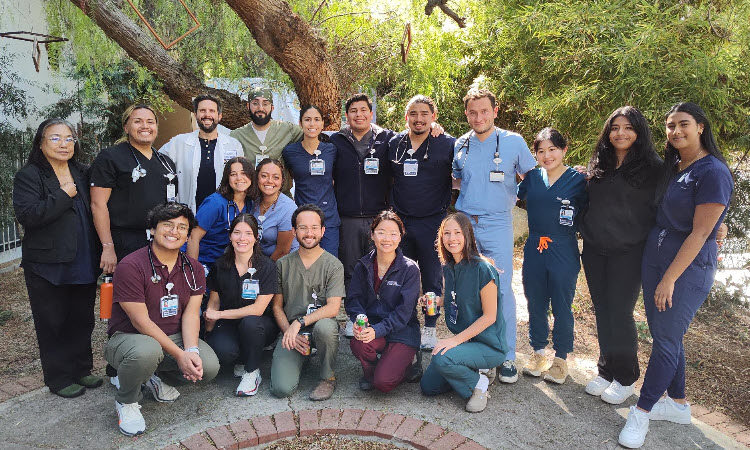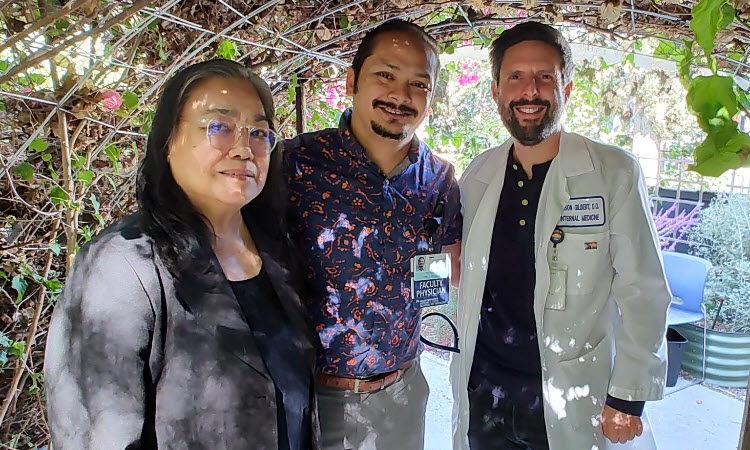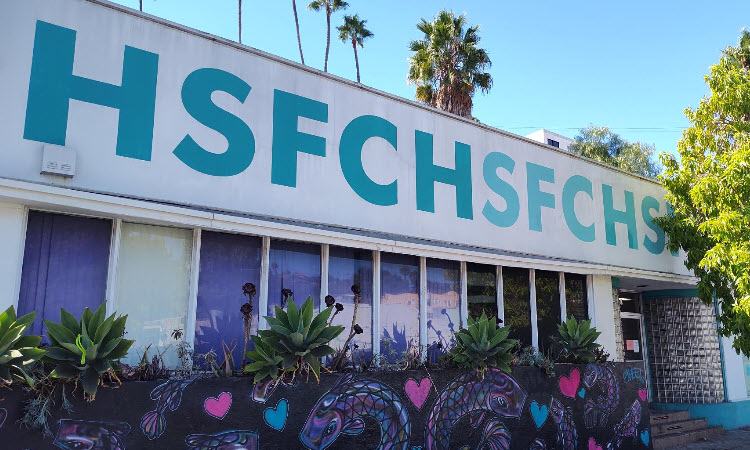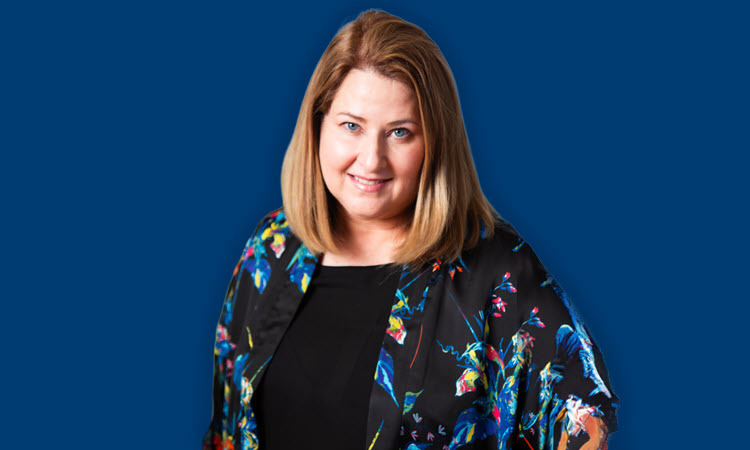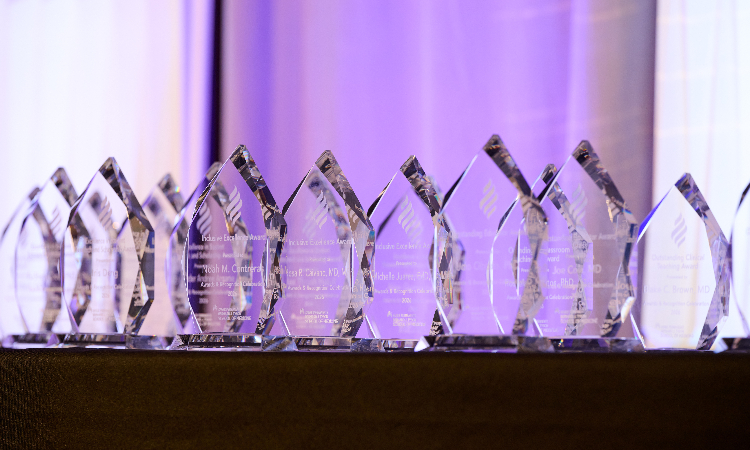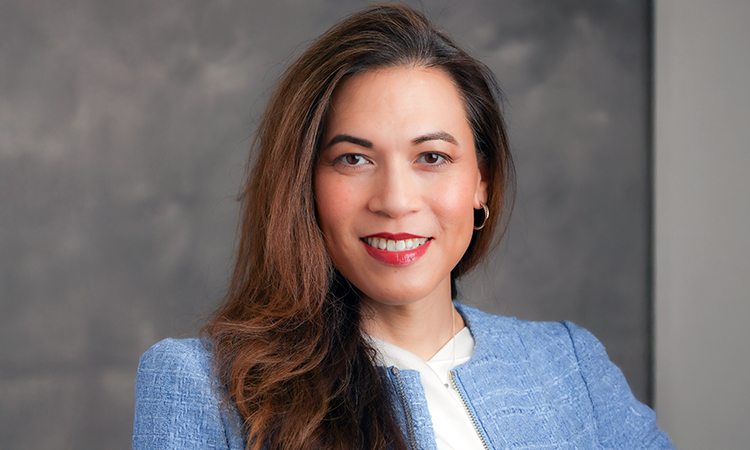For nearly sixty years, the Hollywood Sunset Free Clinic has offered much-needed healthcare services to residents of underresourced neighborhoods in Silverlake, Echo Park, and nearby Los Angeles communities. Serving those who may lack insurance and have language barriers or other socioeconomic factors that limit their access to care, this welcoming space on Sunset Boulevard has been a mainstay in the local drive for health equity and community health. Today, through a partnership with the Kaiser Permanente Bernard J. Tyson School of Medicine (KPSOM), the clinic is also a place where medical students receive valuable training on the front lines of health disparities through volunteer service.
“They bring tremendous energy,” said Teresa Padua, Hollywood Sunset Free Clinic Executive Director. “The medical students come in and they have this look on their faces that says, ‘these people need us, and we want to help.’”
In an effort originated by students from KPSOM’s Class of 2024, and subsequently assumed by members of the KPSOM Community Medicine Student Interest Group, health fairs are hosted by the clinic on a quarterly basis. These events are held on Saturdays, and walk-in patients are welcome to drop in for diabetes screenings, STI screenings, and a host of other common ailments and concerns without an appointment, free of charge. KPSOM students support the entire process of a patient visit–taking vital signs, taking blood pressure and blood sugar readings, assisting with diabetic foot exams, conducting initial patient consultations, conferring with attending physicians, and assisting with health education sessions to advise patients on healthy eating, diabetes management, and other related concerns such as access to Medi-Cal insurance or food stamps programs.
Other than a small number of paid staff, everyone working at the Hollywood Sunset Free Clinic is a volunteer, including the physicians, residents and interns (many of whom are from Kaiser Permanente Los Angeles Medical Center), and waiting room staff. The students give their time and do not receive academic credit for the experience, said Jason Gilbert, DO, KPSOM Clinical Instructor Clinical Science and adviser to the Community Medicine Interest Group.
